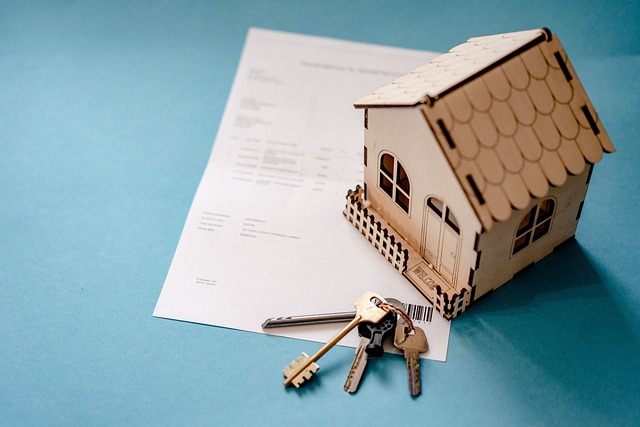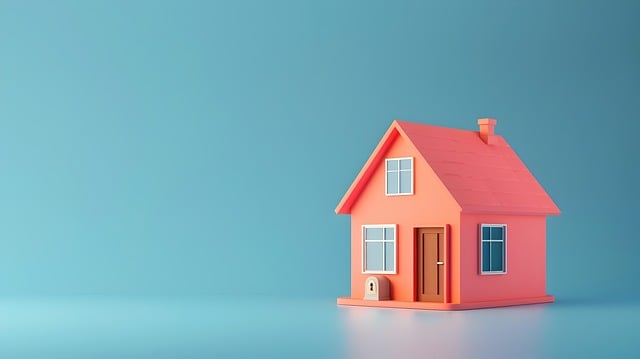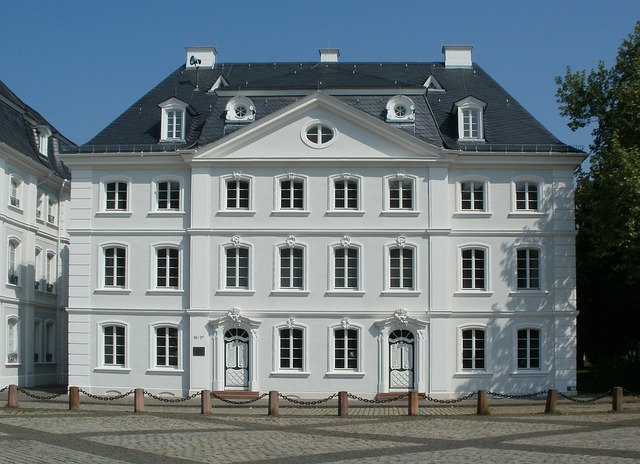In Singapore, the resale price of an Executive Condo (EC) or a freehold property is influenced by their lease terms, with ECs typically being leasehold for 60 to 99 years and freehold properties offering permanent ownership. The remaining lease on an EC significantly impacts its market value; as the lease diminishes, the resale price generally declines. Freehold properties, however, are seen as more stable investments and often demand a higher resale price due to their long-term security. Factors such as location, condition, and current housing market dynamics play a crucial role in determining EC resale prices. Prospective buyers and investors must weigh these factors against their long-term investment objectives when choosing between leasehold and freehold properties within Singapore's property market, with the understanding that leasehold ECs are usually more cost-effective initially but may not retain value as well as freehold properties over time. A strategic approach to this decision is essential for capitalizing on the Executive Condo resale price trends and ensuring alignment with individual financial goals.
In Singapore’s dynamic real estate landscape, discerning property buyers navigate the nuanced differences between Executive Condo (EC) Leasehold and Freehold properties. This article delves into the key factors that influence the resale price of ECs, offering a comparative analysis that is crucial for informed decision-making in the long term. Understanding the intricacies of leasehold versus freehold ownership within this context is essential, as it not only affects the initial investment but also the potential appreciation of your property. With a focus on the Executive Condo resale price and its determinants, this exploration aims to equip you with the knowledge necessary to make a prudent choice that aligns with your financial goals and lifestyle preferences.
- Understanding the Dynamics Between Executive Condo Leasehold and Freehold Properties in Singapore's Real Estate Market
- Factors Influencing the Resale Price of Executive Condos: Leasehold vs. Freehold Comparison
- Making an Informed Decision: The Long-Term Implications of Choosing Between Executive Condo Leasehold and Freehold Ownership
Understanding the Dynamics Between Executive Condo Leasehold and Freehold Properties in Singapore's Real Estate Market

In Singapore’s dynamic real estate landscape, discerning between Executive Condominium (EC) leasehold and freehold properties is crucial for investors and homebuyers alike. ECs, designed to offer a pathway for upgrading from public to private housing, come with a leasehold tenure, typically ranging from 60 to 99 years. This aspect influences the Executive Condo resale price, as the remaining lease significantly affects the property’s valuation and appeal to potential buyers. Leasehold properties tend to depreciate in value as the lease diminishes, whereas freehold properties offer a perceived permanence, potentially justifying higher prices over their entire land tenure.
The resale market for ECs has shown resilience, with leftover units from previous launches and those from completed projects available for purchase. The Executive Condo resale price in this context is influenced by factors such as the unit’s condition, the remaining lease, and the location. On the other hand, freehold properties in Singapore enjoy a reputation for being a more secure investment due to their perpetual land tenure. This security can often translate into a premium on the purchase price compared to leasehold properties, making it a popular choice among buyers seeking long-term ownership. Both EC leasehold and freehold properties cater to different needs and preferences, with the former offering affordability and the latter offering longevity. Understanding the dynamics between these two property types is essential for anyone looking to navigate the Singaporean real estate market effectively.
Factors Influencing the Resale Price of Executive Condos: Leasehold vs. Freehold Comparison

When considering the resale price of an Executive Condo (EC) in Singapore, several factors come into play, influencing potential buyers’ valuations and ultimately affecting market dynamics. The distinction between leasehold and freehold properties is a pivotal aspect that affects EC resale prices significantly. Leasehold properties, which offer a land title for a fixed number of years, typically see a depreciation in value as the lease length decreases over time. This is because the remaining lease acts as a deterrent to future buyers who are concerned about the long-term costs and feasibility of renewing the lease or the potential loss of value when the lease nears its end. In contrast, freehold properties offer an indefinite land title, which is often perceived as more valuable due to their longevity and the security they provide for future generations. The resale price premium for freehold over leasehold properties is a consistent trend observed in the property market. Additionally, the location of the EC, its proximity to amenities, the state of the housing market at the time of resale, and the condition of the unit itself are critical factors that influence the resale price. Prospective buyers often weigh these elements against the lease duration to determine the value they’re willing to invest, which in turn affects the resale market for both leasehold and freehold Executive Condos. Understanding these dynamics is essential for investors and owners looking to make informed decisions regarding the purchase or sale of an EC. The interplay between lease duration, market conditions, and property desirability plays a significant role in shaping the resale price landscape for Executive Condos in Singapore.
Making an Informed Decision: The Long-Term Implications of Choosing Between Executive Condo Leasehold and Freehold Ownership

When considering the long-term implications of purchasing an Executive Condo (EC) in Singapore, potential buyers must weigh the differences between leasehold and freehold properties. The tenure of a property significantly affects its resale value over time. For instance, leasehold ECs are built to last for 99 years, after which the land reverts to the state. As the remaining lease decreases, the resale price of an executive condo leasehold typically drops, which is crucial for prospective buyers to consider when planning for future marketability. Conversely, freehold properties offer a perpetual lease, which can be more appealing to investors seeking long-term capital appreciation and stability in resale value.
Prospective EC owners should assess their long-term objectives and financial plans before making a decision. The executive condo resale price is influenced by factors such as the property’s location, condition, market demand, and the remaining lease. Leasehold properties are generally more affordable initially, which can be advantageous for those who do not plan to hold onto the property until its 99-year lifespan concludes. Freehold properties, on the other hand, may offer a higher initial cost but can prove to be a wise investment for those seeking longevity and potential value growth. Ultimately, making an informed decision requires a comprehensive understanding of the real estate market trends, personal financial situation, and the specific benefits that leasehold and freehold ECs present in Singapore’s dynamic property landscape.
Navigating Singapore’s real estate landscape presents discerning investors with a choice between Executive Condo (EC) Leasehold and Freehold properties. The resale price of ECs, particularly in the context of leasehold versus freehold ownership, is influenced by various factors including the remaining lease and market trends. This article has elucidated the dynamics at play and provided a comparative analysis of the long-term implications associated with each tenure type. Prospective buyers should carefully weigh these factors against their financial goals and lifestyle preferences to make an informed decision that aligns with their investment horizon. The choice between an EC Leasehold and a Freehold property is not merely about immediate value but also about understanding the nuances of lease decay and how it affects the resale price over time. Ultimately, a well-considered approach will yield the most beneficial outcome for those looking to invest in Singapore’s vibrant property market.
